CURRENCY
BUSINESS OPPORTUNITIES IN malaysia
malaysia
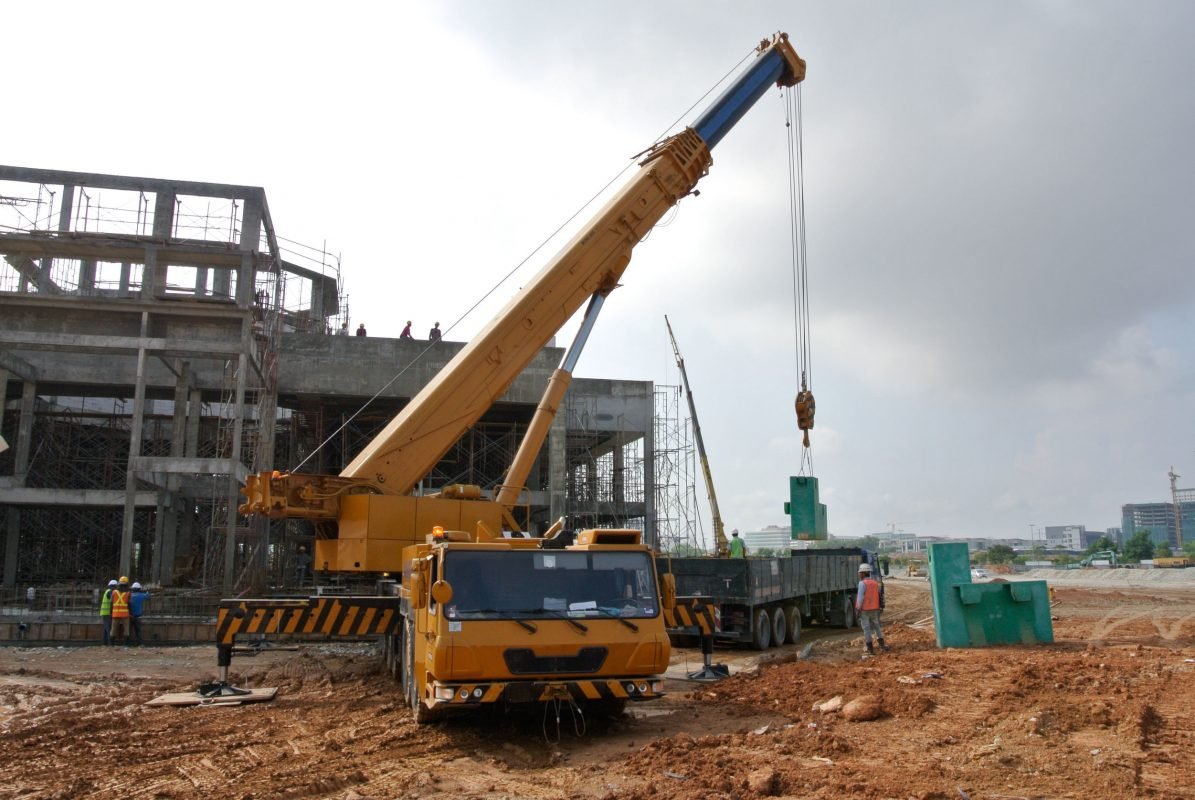
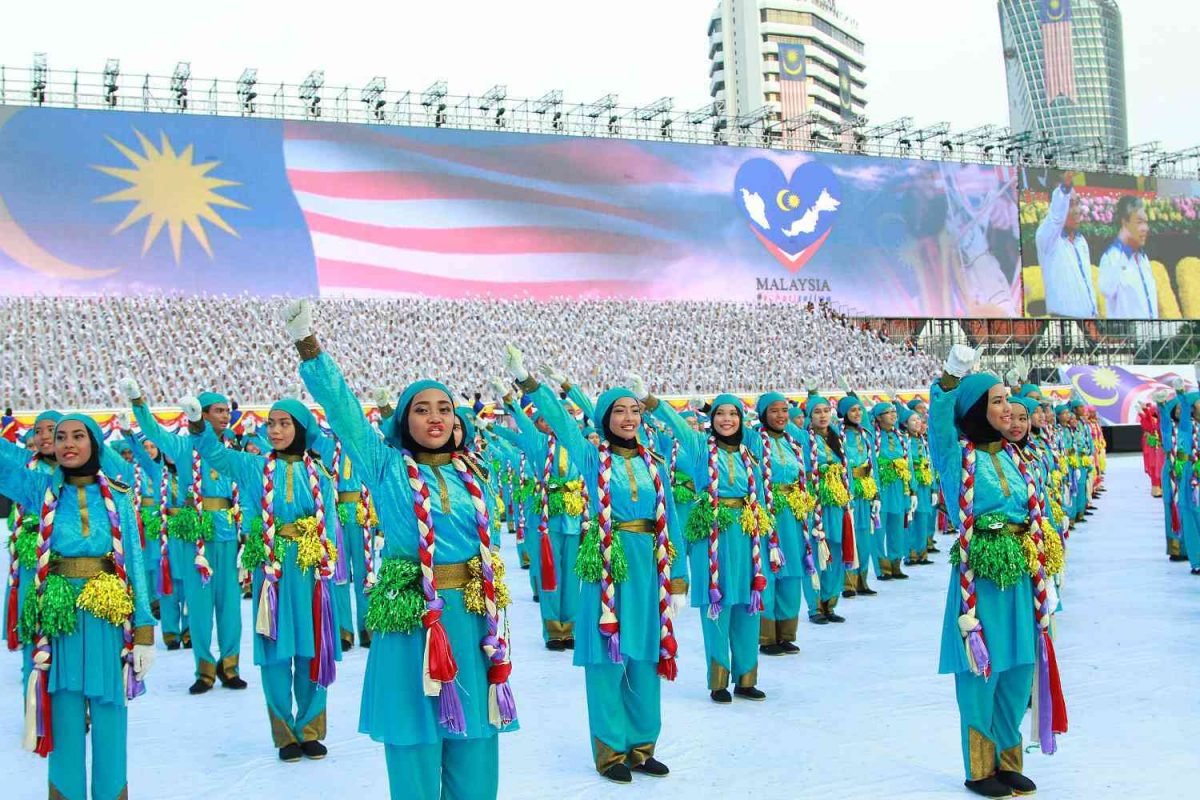
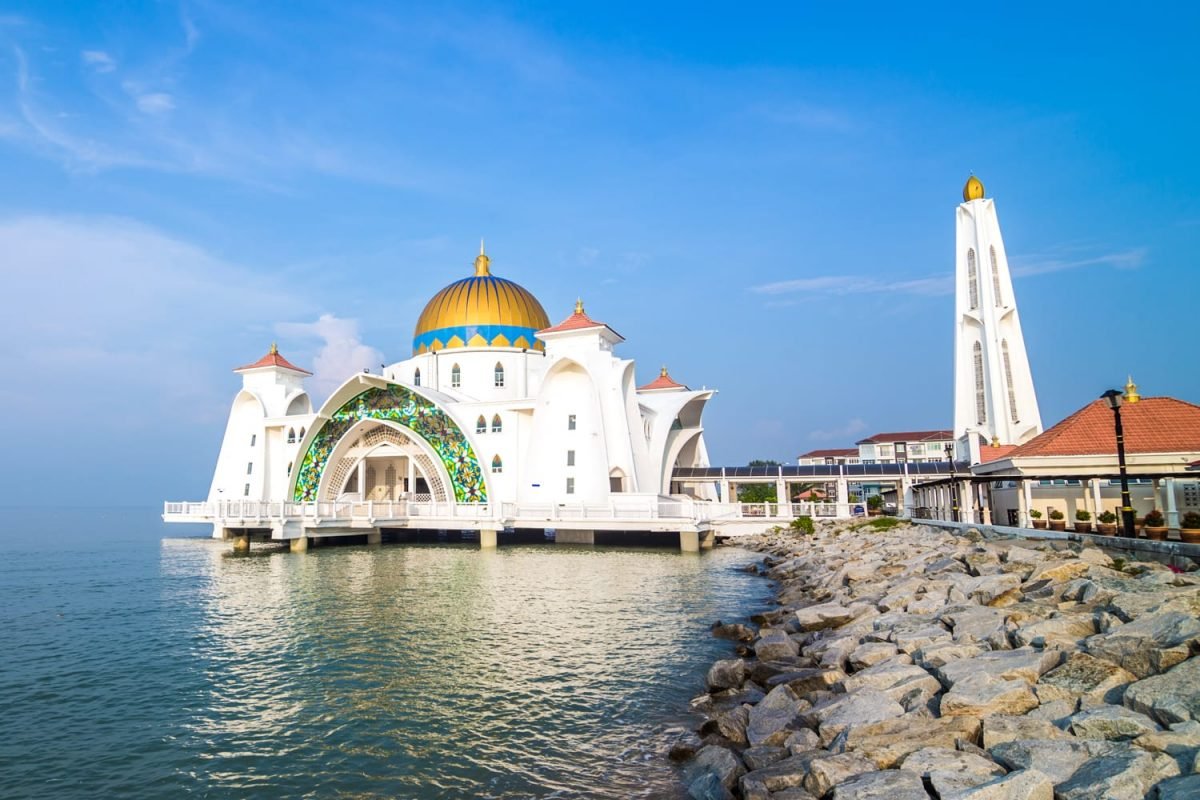
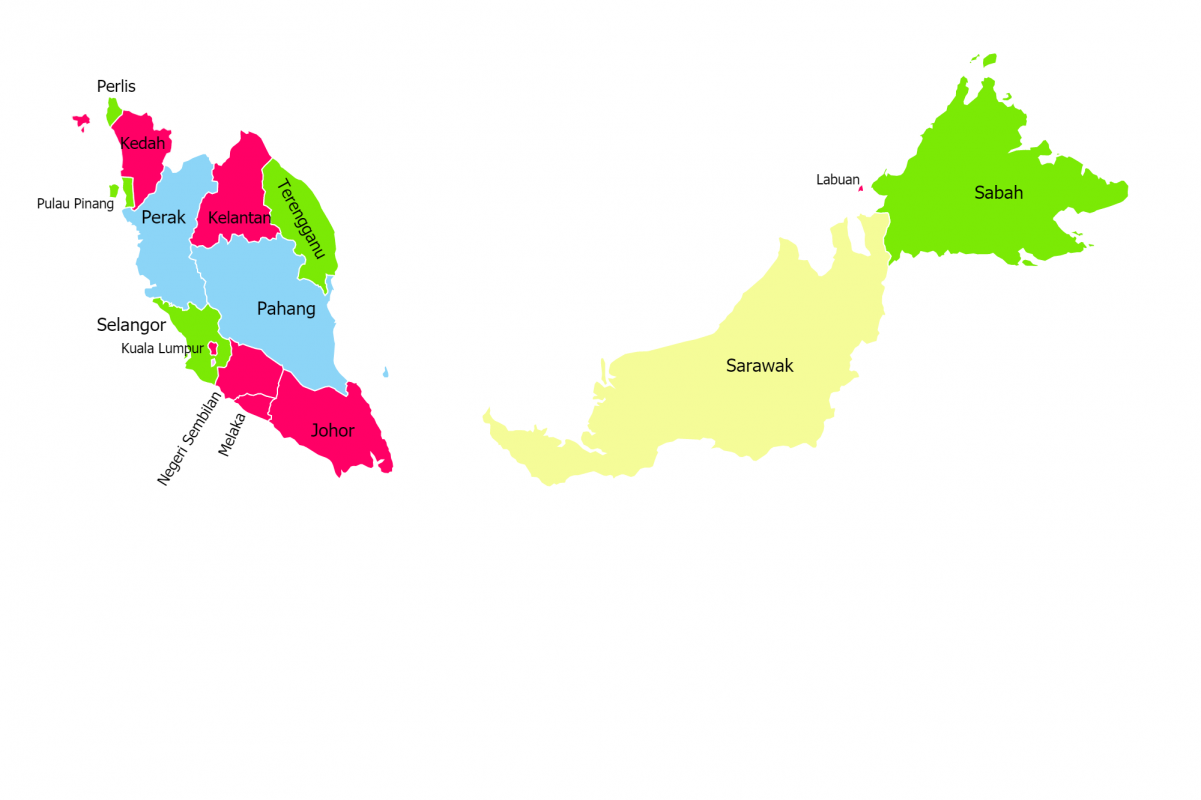
FLAG

MALAYSIA
CAPITAL CITY

KUALA LUMPUR
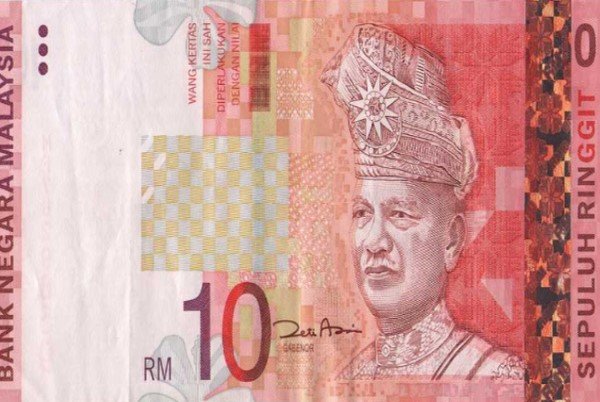
MALAYSIAN RINGGITS
Language

Population

32.7 MILLION
Country
Calling Code
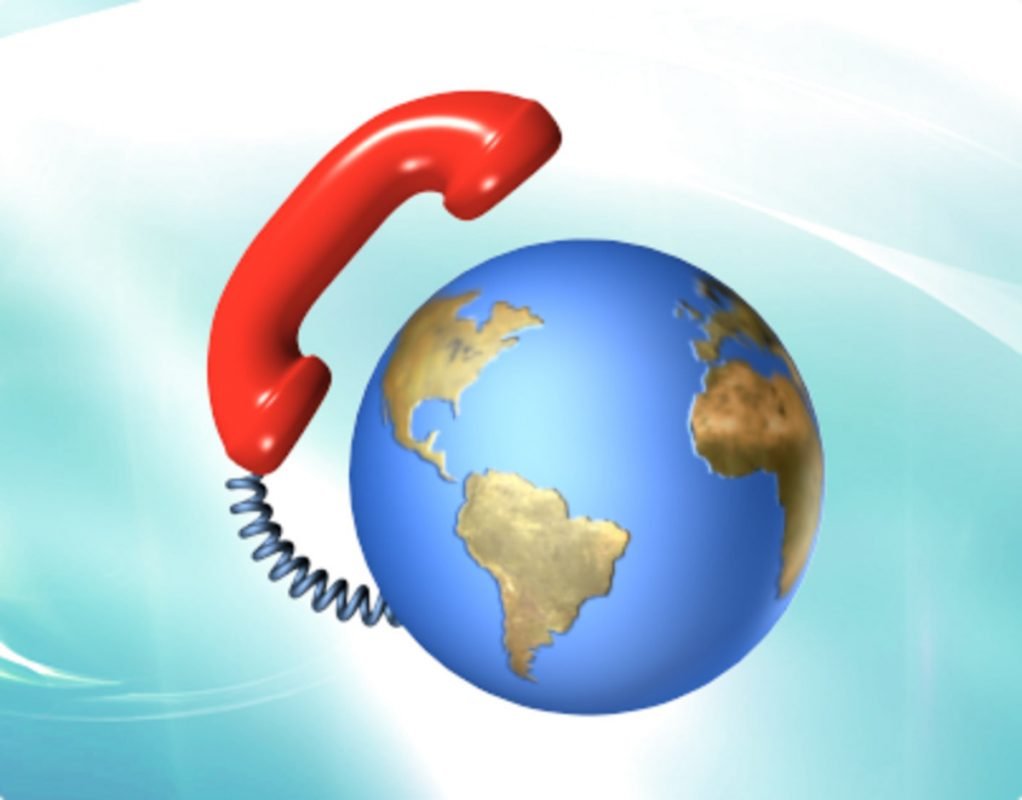
+60
LOCATION:
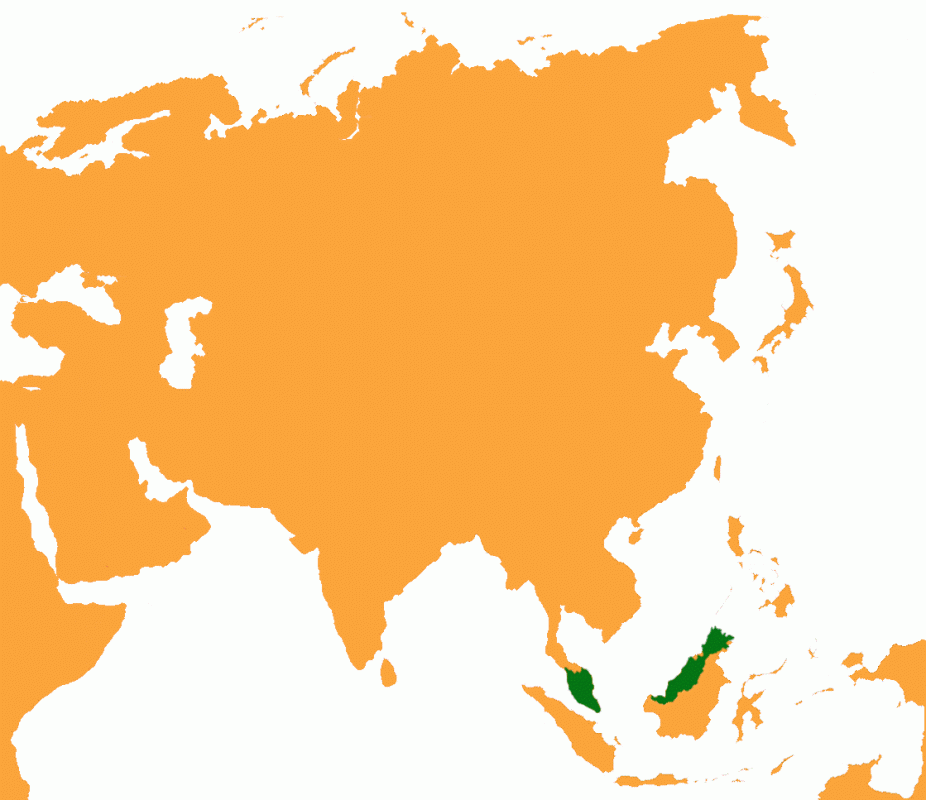
ASIA
BORDER COUNTRIES:
BRUNEI
INDONESIA
THAILAND
PHILIPPINES
SINGAPORE
VIETNAM
ABOUT MALAYSIA
Amongst all the countries in Southeast Asia, Malaysia is a federal constitutional monarchy comprising Peninsular Malaysia and East Malaysia on the island of Borneo. It is a vibrant, multicultural nation known for its diverse landscapes, from pristine beaches and lush rainforests to modern skylines. Malaysia has successfully transformed from an agrarian and mining-based economy to a thriving, diversified economy driven by manufacturing, services, and digital innovation. Kuala Lumpur is the federal capital and largest city, serving as the country’s primary economic and cultural center. Putrajaya is the administrative capital. Malaysia is recognized by the World Bank as an Upper-Middle Income Economy, with aspirations to achieve high-income status and become a developed nation.
The currency of Malaysia is the Malaysian Ringgit (MYR). As of today’s exchange rates (June 2025), 1 Malaysian Ringgit is approximately 20.20 Indian Rupees. The population of Malaysia is estimated at approximately 34.6 million in 2024. Malaysia shares land borders with Thailand to the north (Peninsular Malaysia) and Brunei and Indonesia on the island of Borneo (East Malaysia). It has extensive maritime borders with Singapore, Vietnam, Indonesia, Thailand, Brunei, and the Philippines. The official language is Malay (Bahasa Melayu). English is widely used in business, education, and professional settings, making it easy for international communication. Islam is the official religion, coexisting peacefully with significant populations practicing Buddhism, Christianity, Hinduism, and other faiths. Major international airports include Kuala Lumpur International Airport (KUL), Penang International Airport (PEN), and Kota Kinabalu International Airport (BKI). Its key commercial seaports are Port Klang, Tanjung Pelepas, Penang Port, Kuantan Port, and Bintulu Port, all crucial for international trade and logistics.
The standard corporate income tax rate in Malaysia is 24%. However, Malaysia offers an extensive array of investment incentives designed to attract both domestic and foreign direct investment, particularly in high-value-added, technology-intensive, and strategic sectors. These incentives are primarily administered by the Malaysian Investment Development Authority (MIDA) and include:
- Pioneer Status: Partial or full exemption from income tax for a period of 5 to 10 years.
- Investment Tax Allowance (ITA): An allowance on qualifying capital expenditure incurred, which can be set off against statutory income.
- Reinvestment Allowance (RA): Granted to companies that reinvest in expanding, modernizing, or diversifying their existing businesses.
- Specific Incentives for Strategic Industries: Targeted incentives for sectors like Electrical & Electronics (E&E), digital economy (e.g., Malaysia Digital (MD) status for IT/digital companies), green technology, aerospace, and advanced manufacturing.
- Grants for R&D and Training: Support for innovation and human capital development. Opesh Group of companies will be helping you in completing the Due Diligence process which includes financial planning, registration process, business options, and if required, even helping you find a Rental property for your office.
Establishing a business in Malaysia is generally investor-friendly, with continuous efforts to streamline processes. The Malaysian Investment Development Authority (MIDA) serves as the principal agency promoting and coordinating investments. Foreign investors typically establish a business as a Private Limited Company (Sdn. Bhd. – Sendirian Berhad), which is the most common and preferred structure. Other options include Public Limited Companies (Bhd. – Berhad), Branch Offices, and Limited Liability Partnerships (LLPs). Malaysia has largely liberalized its foreign ownership policies, allowing for 100% foreign equity in many sectors, particularly in manufacturing and certain services, removing the need for prior approval from the Foreign Investment Committee (FIC).
In case an investor is planning to establish a Sdn. Bhd. or a corporate business setup in Malaysia, Opesh Group will be helping you in taking the right decision for setting up your business in Malaysia and we will also guide you about how to follow the procedure while formulating your company in Malaysia.
Types of Business which can be started in Malaysia:
- Electrical & Electronics (E&E): A cornerstone of Malaysia’s manufacturing, particularly in semiconductors, integrated circuits, and components, with strong government support for high-value activities.
- Digital Economy: Opportunities in e-commerce, FinTech, data centers, cloud computing, cybersecurity, and AI, driven by the “Malaysia Digital” initiative.
- Green Technology & Renewable Energy: Significant potential in solar energy, biomass, waste-to-energy, and energy efficiency solutions, aligning with national sustainability goals.
- Medical Devices & Pharmaceuticals: Growing demand for medical equipment, diagnostics, and pharmaceutical manufacturing, supported by robust healthcare infrastructure.
- Logistics & Halal Hub: Leveraging its strategic location and well-developed infrastructure to become a regional logistics and halal industry hub.
- Tourism & Healthcare Travel: Investment opportunities in hotels, resorts, theme parks, and medical tourism facilities.
- Petrochemicals & Specialty Chemicals: A strong existing base in oil and gas allows for further investment in downstream activities.
Advantages of Starting Business in Malaysia:
- Strategic Location: Gateway to ASEAN and broader Asia-Pacific markets.
- Diversified & Resilient Economy: Robust growth driven by multiple sectors.
- Pro-Business Government Policies: Attractive incentives and a supportive regulatory environment.
- Skilled & Multilingual Workforce: Educated and adaptable labor force, proficient in English.
- Developed Infrastructure: Modern ports, airports, roads, and digital connectivity.
- Competitive Cost of Doing Business: Compared to many developed economies.
- Strong Rule of Law: Stable political and legal framework.
Imports & Exports: Malaysia is a leading trading nation, with a strong export-oriented economy.
Major items which are exported from Malaysia:
- Electrical & Electronic (E&E) Products (semiconductors, integrated circuits)
- Petroleum Products (refined fuels)
- Liquefied Natural Gas (LNG)
- Palm Oil & Palm Oil-based Agricultural Products
- Chemicals & Chemical Products
- Machinery, Equipment & Parts
- Manufactures of Metal
- Optical & Scientific Equipment
- Rubber Products (e.g., medical gloves)
Major items which are imported in Malaysia:
- Electrical & Electronic (E&E) Products (components, raw materials)
- Petroleum Products
- Machinery, Equipment & Parts
- Chemicals & Chemical Products
- Crude Petroleum
- Transport Equipment
- Iron & Steel Products
- Plastics
Major items traded between Malaysia and India (as of 2023-2025 data):
- Exports from Malaysia to India: Dominated by Palm Oil and palm oil-based products, Petroleum Products, Electrical & Electronic Products, Chemicals, and LNG.
- Imports in Malaysia from India: Include Mineral Fuels, Mineral Oils, Aluminum and related articles, Meat and edible meat offal, Iron and Steel, Organic Chemicals, and various manufactured goods. Indian IT services, pharmaceuticals, and automotive components also have a growing presence.
Manufacturing: Manufacturing is a cornerstone of the Malaysian economy, consistently being the second-largest contributor to its GDP. The sector is highly diversified, with a strong focus on high-tech and export-oriented industries. Key segments include:
- Electrical & Electronics (E&E): Malaysia is a global hub for semiconductor manufacturing, assembly, and testing. It also produces consumer electronics, telecommunication equipment, and industrial electronics.
- Chemicals & Petrochemicals: Significant production of oleochemicals, basic chemicals, and specialty chemicals, leveraging its oil and gas resources.
- Machinery & Equipment (M&E): Manufacturing of industrial machinery, precision engineering products, and automotive components.
- Automotive: Assembly and manufacturing of vehicles, including national car brands and foreign marques.
- Rubber Products: World-leading producer of rubber gloves and other rubber-based products.
- Food Processing: A growing sector for both domestic consumption and export, including halal food products.
Mining: Malaysia’s mining sector is primarily dominated by oil and natural gas, which are significant contributors to the national economy and export revenues. Major oil and gas fields are located offshore, particularly off the coasts of Peninsular Malaysia, Sabah, and Sarawak. Beyond hydrocarbons, other mineral resources include:
- Tin: Historically, Malaysia was a major tin producer, though output has significantly declined.
- Bauxite: Extracted primarily in Johor and Pahang, used in aluminum production.
- Iron Ore: Small to medium-scale iron ore mining operations exist across several states.
- Coal: Reserves are mainly found in Sabah and Sarawak.
- Gold: Smaller-scale gold mining operations are present, notably in Pahang. The government is promoting responsible mining practices and exploring opportunities in non-hydrocarbon minerals as part of its economic diversification strategy.
- GDP = $445.519 billion (nominal, 2024 est. IMF)
- GDP Growth = 5.1% (2024 forecast, IMF); 3.9% (2025 forecast, World Bank)
- Ease of doing business rank = The World Bank’s ‘Doing Business’ report has been discontinued. In its last published report (2020), Malaysia ranked 12th globally out of 190 economies, recognized for its strong performance in areas like dealing with construction permits, getting electricity, and protecting minority investors. The government continues to implement reforms to further improve the business environment.
- GDP per Capita = $13,315 (nominal, 2024 est. IMF)
Thanks for reading this Article. Watch our Video and know more about Malaysia. For any Business Enquiry Join Millionaire Program and change everything in life and Business.. Call/ WhatsApp +91- 8094607111.
ABOUT MALAYSIA
Amongst all the countries in Southeast Asia, Malaysia is a federal constitutional monarchy comprising Peninsular Malaysia and East Malaysia on the island of Borneo. It is a vibrant, multicultural nation known for its diverse landscapes, from pristine beaches and lush rainforests to modern skylines. Malaysia has successfully transformed from an agrarian and mining-based economy to a thriving, diversified economy driven by manufacturing, services, and digital innovation. Kuala Lumpur is the federal capital and largest city, serving as the country’s primary economic and cultural center. Putrajaya is the administrative capital. Malaysia is recognized by the World Bank as an Upper-Middle Income Economy, with aspirations to achieve high-income status and become a developed nation.
The currency of Malaysia is the Malaysian Ringgit (MYR). As of today’s exchange rates (June 2025), 1 Malaysian Ringgit is approximately 20.20 Indian Rupees. The population of Malaysia is estimated at approximately 34.6 million in 2024. Malaysia shares land borders with Thailand to the north (Peninsular Malaysia) and Brunei and Indonesia on the island of Borneo (East Malaysia). It has extensive maritime borders with Singapore, Vietnam, Indonesia, Thailand, Brunei, and the Philippines. The official language is Malay (Bahasa Melayu). English is widely used in business, education, and professional settings, making it easy for international communication. Islam is the official religion, coexisting peacefully with significant populations practicing Buddhism, Christianity, Hinduism, and other faiths. Major international airports include Kuala Lumpur International Airport (KUL), Penang International Airport (PEN), and Kota Kinabalu International Airport (BKI). Its key commercial seaports are Port Klang, Tanjung Pelepas, Penang Port, Kuantan Port, and Bintulu Port, all crucial for international trade and logistics.
The standard corporate income tax rate in Malaysia is 24%. However, Malaysia offers an extensive array of investment incentives designed to attract both domestic and foreign direct investment, particularly in high-value-added, technology-intensive, and strategic sectors. These incentives are primarily administered by the Malaysian Investment Development Authority (MIDA) and include:
- Pioneer Status: Partial or full exemption from income tax for a period of 5 to 10 years.
- Investment Tax Allowance (ITA): An allowance on qualifying capital expenditure incurred, which can be set off against statutory income.
- Reinvestment Allowance (RA): Granted to companies that reinvest in expanding, modernizing, or diversifying their existing businesses.
- Specific Incentives for Strategic Industries: Targeted incentives for sectors like Electrical & Electronics (E&E), digital economy (e.g., Malaysia Digital (MD) status for IT/digital companies), green technology, aerospace, and advanced manufacturing.
- Grants for R&D and Training: Support for innovation and human capital development. Opesh Group of companies will be helping you in completing the Due Diligence process which includes financial planning, registration process, business options, and if required, even helping you find a Rental property for your office.
Establishing a business in Malaysia is generally investor-friendly, with continuous efforts to streamline processes. The Malaysian Investment Development Authority (MIDA) serves as the principal agency promoting and coordinating investments. Foreign investors typically establish a business as a Private Limited Company (Sdn. Bhd. – Sendirian Berhad), which is the most common and preferred structure. Other options include Public Limited Companies (Bhd. – Berhad), Branch Offices, and Limited Liability Partnerships (LLPs). Malaysia has largely liberalized its foreign ownership policies, allowing for 100% foreign equity in many sectors, particularly in manufacturing and certain services, removing the need for prior approval from the Foreign Investment Committee (FIC).
In case an investor is planning to establish a Sdn. Bhd. or a corporate business setup in Malaysia, Opesh Group will be helping you in taking the right decision for setting up your business in Malaysia and we will also guide you about how to follow the procedure while formulating your company in Malaysia.
Types of Business which can be started in Malaysia:
- Electrical & Electronics (E&E): A cornerstone of Malaysia’s manufacturing, particularly in semiconductors, integrated circuits, and components, with strong government support for high-value activities.
- Digital Economy: Opportunities in e-commerce, FinTech, data centers, cloud computing, cybersecurity, and AI, driven by the “Malaysia Digital” initiative.
- Green Technology & Renewable Energy: Significant potential in solar energy, biomass, waste-to-energy, and energy efficiency solutions, aligning with national sustainability goals.
- Medical Devices & Pharmaceuticals: Growing demand for medical equipment, diagnostics, and pharmaceutical manufacturing, supported by robust healthcare infrastructure.
- Logistics & Halal Hub: Leveraging its strategic location and well-developed infrastructure to become a regional logistics and halal industry hub.
- Tourism & Healthcare Travel: Investment opportunities in hotels, resorts, theme parks, and medical tourism facilities.
- Petrochemicals & Specialty Chemicals: A strong existing base in oil and gas allows for further investment in downstream activities.
Advantages of Starting Business in Malaysia:
- Strategic Location: Gateway to ASEAN and broader Asia-Pacific markets.
- Diversified & Resilient Economy: Robust growth driven by multiple sectors.
- Pro-Business Government Policies: Attractive incentives and a supportive regulatory environment.
- Skilled & Multilingual Workforce: Educated and adaptable labor force, proficient in English.
- Developed Infrastructure: Modern ports, airports, roads, and digital connectivity.
- Competitive Cost of Doing Business: Compared to many developed economies.
- Strong Rule of Law: Stable political and legal framework.
Imports & Exports: Malaysia is a leading trading nation, with a strong export-oriented economy.
Major items which are exported from Malaysia:
- Electrical & Electronic (E&E) Products (semiconductors, integrated circuits)
- Petroleum Products (refined fuels)
- Liquefied Natural Gas (LNG)
- Palm Oil & Palm Oil-based Agricultural Products
- Chemicals & Chemical Products
- Machinery, Equipment & Parts
- Manufactures of Metal
- Optical & Scientific Equipment
- Rubber Products (e.g., medical gloves)
Major items which are imported in Malaysia:
- Electrical & Electronic (E&E) Products (components, raw materials)
- Petroleum Products
- Machinery, Equipment & Parts
- Chemicals & Chemical Products
- Crude Petroleum
- Transport Equipment
- Iron & Steel Products
- Plastics
Major items traded between Malaysia and India (as of 2023-2025 data):
- Exports from Malaysia to India: Dominated by Palm Oil and palm oil-based products, Petroleum Products, Electrical & Electronic Products, Chemicals, and LNG.
- Imports in Malaysia from India: Include Mineral Fuels, Mineral Oils, Aluminum and related articles, Meat and edible meat offal, Iron and Steel, Organic Chemicals, and various manufactured goods. Indian IT services, pharmaceuticals, and automotive components also have a growing presence.
Manufacturing: Manufacturing is a cornerstone of the Malaysian economy, consistently being the second-largest contributor to its GDP. The sector is highly diversified, with a strong focus on high-tech and export-oriented industries. Key segments include:
- Electrical & Electronics (E&E): Malaysia is a global hub for semiconductor manufacturing, assembly, and testing. It also produces consumer electronics, telecommunication equipment, and industrial electronics.
- Chemicals & Petrochemicals: Significant production of oleochemicals, basic chemicals, and specialty chemicals, leveraging its oil and gas resources.
- Machinery & Equipment (M&E): Manufacturing of industrial machinery, precision engineering products, and automotive components.
- Automotive: Assembly and manufacturing of vehicles, including national car brands and foreign marques.
- Rubber Products: World-leading producer of rubber gloves and other rubber-based products.
- Food Processing: A growing sector for both domestic consumption and export, including halal food products.
Mining: Malaysia’s mining sector is primarily dominated by oil and natural gas, which are significant contributors to the national economy and export revenues. Major oil and gas fields are located offshore, particularly off the coasts of Peninsular Malaysia, Sabah, and Sarawak. Beyond hydrocarbons, other mineral resources include:
- Tin: Historically, Malaysia was a major tin producer, though output has significantly declined.
- Bauxite: Extracted primarily in Johor and Pahang, used in aluminum production.
- Iron Ore: Small to medium-scale iron ore mining operations exist across several states.
- Coal: Reserves are mainly found in Sabah and Sarawak.
- Gold: Smaller-scale gold mining operations are present, notably in Pahang. The government is promoting responsible mining practices and exploring opportunities in non-hydrocarbon minerals as part of its economic diversification strategy.
- GDP = $445.519 billion (nominal, 2024 est. IMF)
- GDP Growth = 5.1% (2024 forecast, IMF); 3.9% (2025 forecast, World Bank)
- Ease of doing business rank = The World Bank’s ‘Doing Business’ report has been discontinued. In its last published report (2020), Malaysia ranked 12th globally out of 190 economies, recognized for its strong performance in areas like dealing with construction permits, getting electricity, and protecting minority investors. The government continues to implement reforms to further improve the business environment.
- GDP per Capita = $13,315 (nominal, 2024 est. IMF)
Thanks for reading this Article. Watch our Video and know more about Malaysia. For any Business Enquiry Join Millionaire Program and change everything in life and Business.. Call/ WhatsApp +91- 8094607111.
MOST RECENT VIDEOS
SIGN UP TODAY
Get our exclusive content and offers in your inbox











